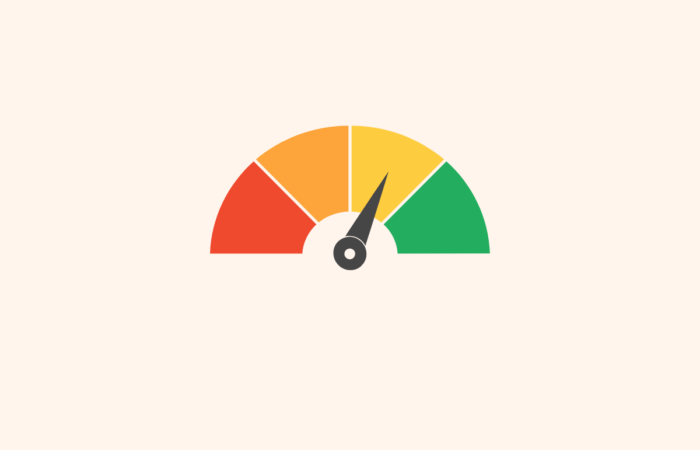Starting January 1, 2025, Iowa’s new privacy law, the Iowa Consumer Data Protection Act (ICDPA), kicked in. It’s a big deal for anyone dealing with consumer data in Iowa. This law is meant to safeguard personal information and give people more control over their data. Businesses need to get ready, as the ICDPA introduces new rules and responsibilities. While it shares some traits with other state laws, Iowa’s approach has its own twists. Let’s break down what this law means for both consumers and businesses.
Table of Contents
Key Takeaways
- The ICDPA became effective on January 1, 2025
- Consumers gain rights like accessing and deleting their data, but can’t correct it under this law.
- Businesses must provide clear privacy notices and offer opt-out options for data sales and targeted ads.
- The law applies to businesses handling data from over 100,000 residents or making big bucks from data sales.
- Violations can lead to fines up to $7,500 per incident, with enforcement by the Iowa Attorney General.
Understanding the Iowa Consumer Data Protection Act
Overview of the ICDPA
The Iowa Consumer Data Protection Act (ICDPA) is a landmark privacy law that came into effect on January 1, 2025. It aims to safeguard the personal data of Iowa residents by setting clear guidelines for businesses on how to handle such information. The act is designed to provide consumers with greater control over their personal data, ensuring transparency and accountability from businesses that collect and process this data.

Key Provisions of the ICDPA
The ICDPA outlines several key provisions that businesses must adhere to:
- Data Security Requirements: Businesses must implement reasonable security measures to protect consumer data.
- Consumer Rights: The law grants consumers specific rights, such as access to their data and the ability to request its deletion.
- Opt-Out Options: Consumers can opt-out of the sale of their personal data, offering them more control over their information.
Comparison with Other State Laws
While the ICDPA shares similarities with other state privacy laws like California’s CCPA, it also has unique features. For instance, the ICDPA provides a 90-day right to cure period, which is notably business-friendly.
The introduction of the ICDPA marks a significant step forward in consumer data protection, reflecting the growing importance of privacy in the digital age. Businesses operating in Iowa must now navigate these requirements to remain compliant and maintain consumer trust.
Scope and Applicability of the Iowa Consumer Data Protection Act
Who Must Comply with the ICDPA
Based on Section 715D.2, The Iowa Consumer Data Protection Act (ICDPA) applies to for-profit businesses (controllers or processors) that either operate in Iowa or target their services to Iowa residents. Specifically, it affects those that handle the personal data of at least 100,000 Iowans or those processing data for 25,000 individuals while deriving over half of their revenue from selling this data. This makes it essential for businesses to evaluate their data practices if they meet these thresholds.
Exemptions Under the ICDPA
Not every entity falls under the ICDPA’s purview. Exemptions include:
- Non-profit organizations
- State governmental bodies
- Higher education institutions
- Entities covered by HIPAA and the Gramm-Leach-Bliley Act
Additionally, the law exempts certain types of data, like protected health information and data regulated under other federal laws.
Impact on Businesses and Consumers
For businesses, the ICDPA means revisiting privacy policies and ensuring data practices align with the Act’s requirements. This includes providing clear opt-out options for data sales and updating consumer rights processes. Consumers, on the other hand, gain more control over their personal data, although they should be aware that the ICDPA does not grant rights to data correction.
The ICDPA brings a balanced approach, offering consumer protections while maintaining a business-friendly environment. Businesses must navigate these requirements carefully, as non-compliance could lead to significant penalties.
Consumer Rights Under the Iowa Consumer Data Protection Act
The Iowa Consumer Data Protection Act (ICDPA) gives residents of Iowa several rights regarding their personal data. These rights aim to provide individuals with more control over their personal information, ensuring transparency and accountability from businesses. A controller must respond within 90 days to such request (can be extended by additional 45 days in some cases).
Right to Access and Deletion
Under the ICDPA, consumers have the right to access their personal data held by companies. This means you can see what information businesses have about you and how they’re using it. If you find something you don’t like, you can ask for it to be deleted. This is a big deal because it lets you manage your digital footprint more effectively.
Opt-Out Rights for Consumers
One of the significant aspects of the ICDPA is the right to opt out of certain data processing activities. Consumers can choose not to have their data sold or used for targeted advertising. This empowers individuals to limit how their personal information is shared and used, offering a layer of protection against unwanted data exploitation.
Limitations of Consumer Rights
While the ICDPA provides several rights, there are limitations. For instance, it does not allow consumers to correct inaccurate data, which is something other laws might offer. Additionally, while consumers can opt out of data sales and targeted advertising, they cannot opt into sensitive data processing, leaving some data handling decisions up to the businesses.
Obligations for Businesses Under the Iowa Consumer Data Protection Act
Data Security and Privacy Notices
Businesses need to set up solid security measures to keep personal data safe. This means putting in place technical, physical, and administrative safeguards to stop unauthorized access and data breaches. The level of security should match the amount and type of data you handle. Also, businesses must provide a clear privacy notice to consumers. This notice should cover what data is collected, why it’s collected, and who it’s shared with.
Additionally, there’s a requirement for:
- Clear notice and opt-out opportunity for processing sensitive data
- Parental consent for processing children’s data
- Special protections for sensitive data categories
Vendor Management and Contracts
When working with third-party vendors, businesses must have contracts that lay out specific data protection responsibilities. These contracts need to ensure that vendors also follow the data protection rules set by the Iowa Consumer Data Protection Act. It’s crucial to keep an eye on these vendors to make sure they stick to the agreed terms.
Penalties for Non-Compliance
The Iowa Consumer Data Protection Act gives businesses a 90-day window to fix any issues, which is pretty generous compared to other states. But if the problems aren’t sorted out in time, businesses might have to deal with fines or legal actions. So, it’s best to stay on top of compliance to avoid these headaches.
Staying compliant with the Iowa Consumer Data Protection Act isn’t just about avoiding penalties. It’s about building trust with your consumers by showing that you care about their privacy and data security.
Enforcement and Penalties of the Iowa Consumer Data Protection Act
Role of the Iowa Attorney General
The Iowa Consumer Data Protection Act (ICDPA) is primarily enforced by the Iowa Attorney General’s Office. This office has the power to investigate any potential violations of the act. If they suspect a business isn’t complying, they can issue a civil investigative demand. This step is crucial because it formally notifies the business of the alleged non-compliance and gives them a chance to respond. The Attorney General plays a pivotal role in ensuring businesses adhere to the rules, maintaining a fair marketplace for consumers.
Penalties for Violations
Non-compliance with the ICDPA can result in hefty fines. Businesses found in violation can face penalties of up to $7,500 per infraction. This can quickly add up, especially if multiple violations occur or if the breach affects a large number of consumers. The financial stakes are significant, emphasizing the importance of compliance. The penalties are designed to motivate businesses to prioritize consumer data protection and avoid any potential infractions.
Right to Cure and Response Periods
One of the unique aspects of the ICDPA is the “right to cure” provision. When a business is notified of a violation, they are given a 90-day period to rectify the issue. This grace period allows businesses to address and correct any non-compliance issues without immediate penalties. However, if the business fails to cure the violation within this timeframe, or if further violations occur, the Attorney General can proceed with legal action. This approach balances enforcement with an opportunity for businesses to improve their practices.
The ICDPA’s enforcement framework highlights a balanced approach, combining strict penalties with opportunities for businesses to amend their practices. This ensures consumer protection while allowing businesses a fair chance to comply with the law.
Preparing for Compliance with the Iowa Consumer Data Protection Act
Steps for Businesses to Take
Getting ready for the Iowa Consumer Data Protection Act (ICDPA) isn’t a walk in the park, but it’s doable with the right approach. Here’s a simple breakdown:
- Update Privacy Policies: Make sure your privacy policy reflects the ICDPA requirements. This includes: The categories of personal data processed by the controller, the purpose for processing personal data, how consumers may exercise their consumer rights, how a consumer may appeal a controller’s decision with regard to the consumer’s request, the categories of personal data that the controller shares with third parties, if any, and the categories of third parties, if any, with whom the controller shares personal data.
- Implement Opt-Out Mechanisms: Provide clear options for consumers to opt-out of data sales, targeted advertising, and the processing of sensitive data.
- Review Data Practices: Conduct a thorough review of your data collection and processing practices to ensure they align with the principles of data minimization and purpose limitation.
Checklist for ICDPA Compliance
A checklist can be your best friend when tackling compliance. Here’s a quick list to keep you on track:
- Practice data minimization and purpose limitation.
- Implement robust security safeguards.
- Provide a clear and concise privacy notice.
- Disclose details about data sales and targeted advertising.
- Ensure opt-outs for sensitive data processing and advertising.
- Maintain solid contracts with data processors.
- Develop a prompt response plan for data breaches.
- Respect consumer rights without retaliation.
- Maintain a list of all your third-parties with hoggo
Comparing the Iowa Consumer Data Protection Act with Other Privacy Laws
Similarities with GDPR and CCPA
The Iowa Consumer Data Protection Act (ICDPA) shares common ground with well-known privacy laws like the GDPR and CCPA. All these laws aim to give consumers more control over their personal data, ensuring transparency from businesses about how data is used.
Both the GDPR and the ICDPA separate controllers and processors. They both include a provision for the processor to assist controllers with their duties and with responds to consumers’ rights requests. Additionally, both the ICDPA and the GDPR require written engagement with processors and sub-processors.
A key similarity is the provision for consumers to opt out of data sales, a feature seen in the CCPA.
Unique Features of the ICDPA
Iowa’s privacy law stands out as it lacks a provision for consumers to correct their personal data, unlike most comprehensive state privacy laws. This makes the ICDPA somewhat unique in its approach.
- No right for consumers to correct personal data
Wrapping Up the Iowa Consumer Data Protection Act
So, there you have it. The Iowa Consumer Data Protection Act is set to shake things up starting January 1, 2025. It’s all about giving folks in Iowa more control over their personal data while making sure businesses play by the rules. Sure, there are some things it doesn’t cover, like fixing data errors or automated decisions, but it’s a step in the right direction. Businesses have some time to get their act together, and the Iowa Attorney General is ready to step in if they don’t. It’s a big change, but with data privacy becoming more important every day, it’s a change that’s needed. Let’s see how it all plays out once the law kicks in.

Noa Kahalon
Noa is a certified CIPM, CIPP/E, and a Fellow of Information Privacy (FIP) from the IAPP. Her background consists of marketing, project management, operations, and law. She is the co-founder and COO of hoggo, an AI-driven Digital Governance platform that allows legal and compliance teams connect, monitor, and automate digital governance across all business workflows.
- Noa Kahalon#molongui-disabled-link
- Noa Kahalon#molongui-disabled-link
- Noa Kahalon#molongui-disabled-link
- Noa Kahalon#molongui-disabled-link




